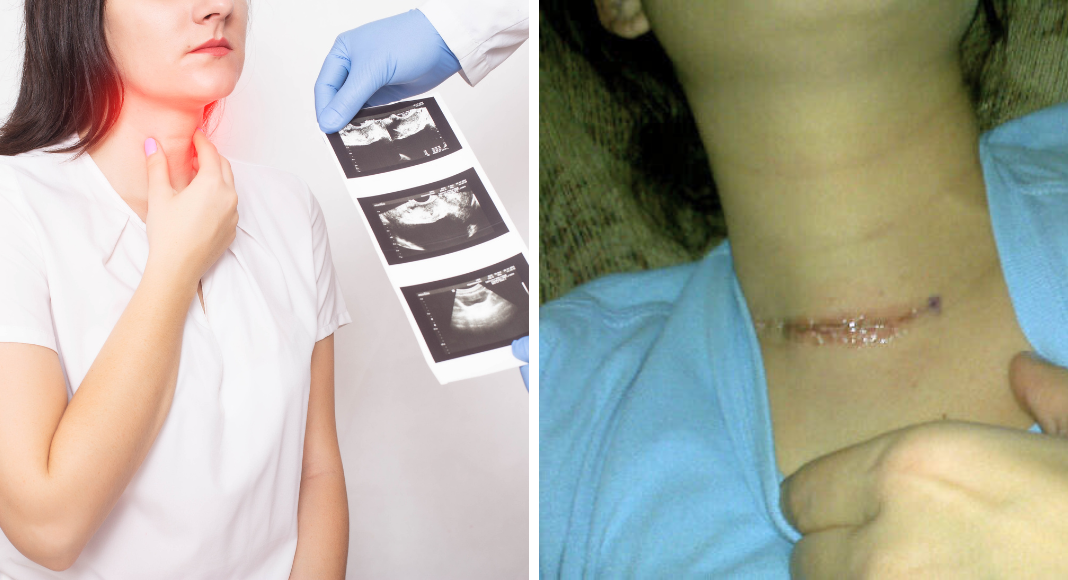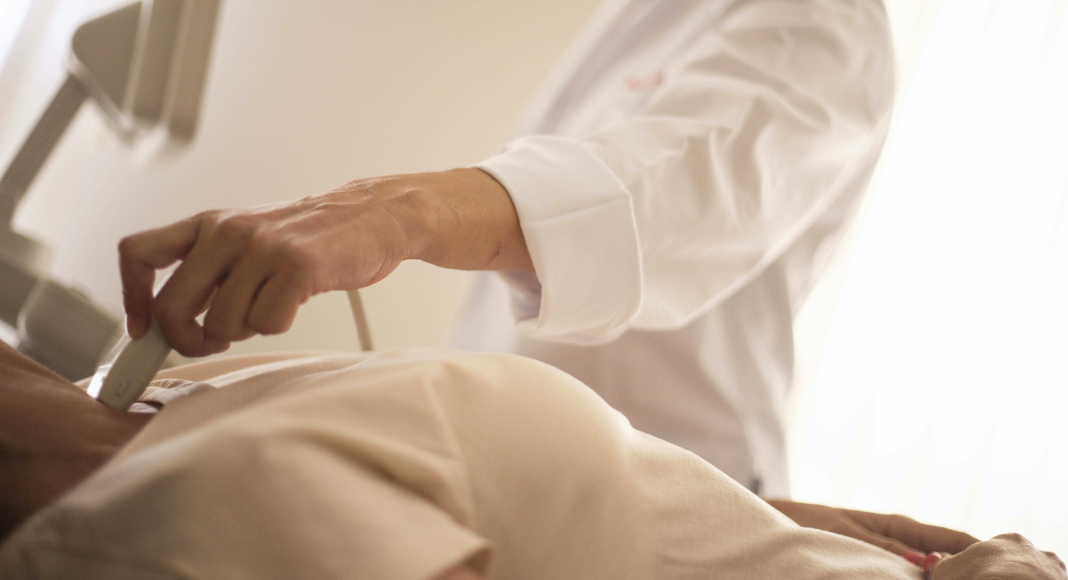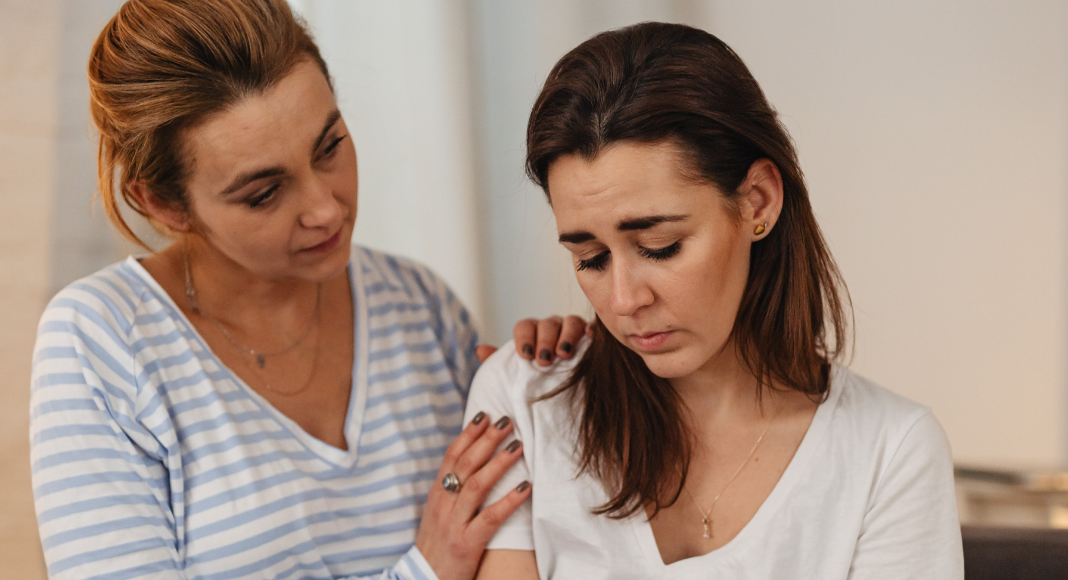I sat in the bottom of the shower, completely exhausted, my tears mixing with the warm water cascading over me. I had decided to shower and wash my long, brown hair, which was an incredibly debilitating task lately. And as predicted, I found myself hardly able to finish my shower because of the intense physical exhaustion that it brought on. How had something so simple turned into a completely arduous task?
There I sat, bawling in the tub, naked, and terrified of what my young life was becoming. I was only 22 years old and had been married less than a year, and my body was fighting against me in every aspect. Since my thyroid surgery a couple of months earlier to remove a large nodule (and the entire right side of my thyroid), and the subsequent diagnosis of Hashimoto’s Thyroiditis, I had changed into a woman that I did not want to be.

My Thyroid Disease Symptoms
I suffered from the worst fatigue imaginable, my hair was falling out everywhere, I lived in a constant brain fog, and my mood was perpetually depressed and volatile. I knew these were all symptoms of my Hashimoto’s disease — the hypothyroid autoimmune disease in which my own body was attacking my thyroid gland as if it were a foreign object.
I was waiting on my upcoming appointment with the endocrinologist, a doctor who specializes in thyroid disorders, to start treatment for my hypothyroidism. That appointment couldn’t come soon enough! I was suffering day in and day out. I was missing shifts at my brand-new nursing job. My husband was walking on eggshells around me, not sure what to do, nor what to say, to try and help me (and not get yelled at or invoke my tears of sadness).
I was fortunate that once I did have my first endocrinologist appointment, she prescribed medication that alleviated a lot of the symptoms fairly quickly. This allowed me to mostly get back to my old self. But even now, 14 years later, I still feel the symptoms of my thyroid disease daily. It’s a constant battle, one that I will be fighting for the rest of my life.
About Thyroid Disease
The thyroid is a butterfly-shaped gland that lies in the front of your neck. This gland produces a hormone that “influences every cell, tissue, and organ in the body.” When a disruption occurs in the levels of this thyroid hormone, the body experiences widespread, debilitating side effects.
According to the American Thyroid Association, it is estimated that about 20 million Americans suffer from some sort of thyroid disease, and a whopping 60 percent of those are “unaware of their condition.”
I had been experiencing many of the symptoms of hypothyroidism for years before my surgery and treatment. However, when my blood was tested for the circulating levels of TSH, or thyroid stimulating hormone, my levels were always normal, and thus I was never diagnosed nor put on medication. It was only because my primary care physician felt a nodule in my neck on a yearly physical that I underwent further testing. Half of my thyroid gland needed removing, which then resulted in the diagnosis of Hashimoto’s and starting my medication.
One can be diagnosed with hyperthyroidism (where the body produces too much thyroid hormone) or hypothyroidism (where the body produces too little of the hormone). In addition, some people, like myself, suffer from an autoimmune disease of the thyroid. This means the body produces antibodies that damage the thyroid — making it unable to produce the thyroid hormone in the correct amounts for the body to function appropriately.
Symptoms and Diagnosis of Thyroid Disease
Symptoms of hyperthyroidism include irritability, rapid heart rate, weight loss, nervousness, and sleep disturbances, among others. Symptoms of hypothyroidism include fatigue, depression, weight gain, forgetfulness, hair loss, and dry skin, just to name a few.
To diagnose thyroid disease, your doctor will need to know the symptoms you are experiencing, and they will order blood tests to measure the circulating levels of thyroid hormone in your body. The results of these tests will allow them to prescribe an appropriate treatment for your disease, if warranted.
But even with medication, most people who experience thyroid disease may still suffer from the symptoms. I experience symptoms of my hypothyroidism and Hashimoto’s Disease daily. I seldom “feel good” as I am plagued by constant fatigue and mood changes. I hear the same from many individuals who battle thyroid disease as well. My doctor does a great job of frequently checking my blood levels, and she is excellent at tweaking my medication ever so slightly to try and achieve an optimum level of thyroid hormone in my body so that I can feel at my best.
 Seeking Help
Seeking Help
It is important to talk to your doctor if you are concerned about your thyroid or if you are experiencing symptoms consistent with those of thyroid disease. Have your doctor feel your neck and assess for any lumps, nodules, or asymmetry of your actual thyroid gland. If any of this is apparent or suspected, your doctor may order an ultrasound to further assess the physical structure of your thyroid gland.
Very rarely, cancer of the thyroid can occur, but this type of cancer is very treatable and has a high survival rate if caught early on.
Most importantly, advocate for yourself! If you feel like your body is not functioning properly, and if you have debilitating symptoms that are impacting your quality of life, continue to push for thyroid testing.
It took years to get my diagnosis since the TSH levels in my blood were always normal. I have now learned that there is other testing that can be done to assess the functioning of your thyroid gland: checking T3 (triiodothyronine) and T4 (thyroxine) levels, which are additional thyroid hormones that circulate the body. You can also have an anti-thyroid antibody blood test to assess if your thyroid disease might be the result of an autoimmune disorder (such as Hashimoto’s and Graves’ diseases).
With January being National Thyroid Awareness Month, now is a great time to bring up your symptoms with your doctor and get a comprehensive assessment.
Most people with thyroid disease are women. One in eight women will “develop a thyroid disorder during her lifetime.” It is extremely important to achieve a diagnosis as early as possible so that your doctor can manage the hormonal imbalance with appropriate medications and treatments.
According to the American Thyroid Association, “Undiagnosed thyroid disease may put patients at risk for certain serious conditions, such as cardiovascular diseases, osteoporosis, and infertility.” Without treatment, an imbalance of the thyroid hormone can even impact pregnancy and your unborn baby.
Finding More Support
Lastly, if you are diagnosed with a thyroid disorder, talk with those close to you about your condition and the symptoms that you are experiencing. Let them know how they can support you in your journey.
There are many resources online for support that might be helpful to you and your family, as well as lots of information regarding thyroid disease.
Thyroid disease is extremely common, and most often easily treatable, but you must communicate with your doctor and advocate for yourself until you get an answer and a treatment plan. Never downplay your symptoms and accept them as just how things are! And as always, don’t ever hesitate to talk about it with your friends and family and lean on them for assistance and support!














I’ve had hypothyroidism since I was 18. I struggle with feeling like no doctor will ever get my levels right. Every 4 weeks blood work and medicine change just to find out I’m worse. MUSC had a great doctor who was the only one who said “this is the best we are going to get “ 15 years ago and has since retired with me searching since then for a doctor who gets me “close enough” again.
Any recommendations for a endocrinologist anywhere in sc would be greatly appreciated💜